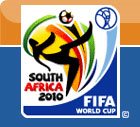
Top stories






More news


Marketing & Media
Ads are coming to AI. Does that really have to be such a bad thing?














Termed the Rainbow Nation by Archbishop Desmond Tutu and subsequently adopted by President Nelson Mandela, SA's brand essence stands to gain the most when the 2010 FIFA World Cup kicks off. As evidenced by history, hosting the FIFA World Cup holds significant potential for healing racial divides and uniting the nation behind a common goal.
Prior to the 1998 FIFA World Cup, the host nation France - whose brand essence ‘Liberté, égalité, fraternité' originated during the French Revolution in 1789, was riddled by xenophobia and labelled ‘the most racially troubled country in Europe'. Even the French team, which was composed of many players from immigrant backgrounds, was subject to verbal attacks from right-wing politicians, most notably National Front politician Jean-Marie Le Pen, who protested that the Black, Blanc, Beur (Black, White, Arab) team that won the world cup did not look sufficiently French.
The French national football team had long reflected the ethnic diversity of the country. The first black player playing in the national team was Raoul Diagne in 1931, the son of the first African elected to the French National Assembly, Blaise Diagne. In the 1950s, as the French team was reaching the semi-final at the 1958 World Cup, it included many sons of immigrants. This tradition continued through the 1980s, when such successful players as Michel Platini, Jean Tigana, Luis Fernández, and Eric Cantona all had foreign-born parents.
During the 1990s, the team was widely celebrated as an example of the multicultural French ideal. On the 2006 French World Cup team, 17 out of the 23 players were members of racial minorities, including many of the most prominent players, such as Patrick Vieira, who immigrated as a child from Senegal, Bafétimbi Gomis who holds dual French-Senegalese nationality, and Claude Makélélé, likewise from the Democratic Republic of the Congo.
In fact, at the 2006 FIFA Final that pitted France against Italy, at one time nine out of the 11 players on the field were either of African or West Indian descent.
It has been said many times that football possesses a mystical power to unify diverse people, and the case of France in 1998 was no different. In a story as unlikely as it is uplifting, France won the world cup on its home turf and the team's captain, Zinedine “Zizou” Zidane became a national hero and a role model for hundreds of thousands of French youth.
After the 1998 championship match, the streets of Paris resonated with cries of “Black, Blanc, Beur” , and the players became irreproachable in the eyes of French public, regardless of their country of origin.
According to Tom Sancton, the head of the Parisian office of Time magazine, “the football team did more to promote racial tolerance in France, and pride and a sense of belonging amongst its immigrant population, than anything the government could have ever done.”
Football once again came to the forefront of the national debate on immigration in 2006 after Zidane's infamous head-butt in the final of the World Cup in Germany. Presumably provoked by racial slurs made by Italian player Marco Materazzi, Zidane was given a red card and expelled from the game. The French team went on to lose in a penalty shoot-out with many spectators and commentators opining that Zidane's shocking and disappointing behaviour deflated team spirits.
It is not known specifically what Materazzi said, as both players refused to reveal the details, but many have speculated that he called either Zidane or his relatives harkis, a French pejorative that refers to Algerians who collaborated with the French during the Algerian War.
Initial predictions claimed that Zidane's impetuous actions had not only ruined his reputation but also his legacy. The reality, however, appears to be somewhat cheerier. In statements made shortly after the incident, Jacques Chirac decried the inappropriateness of his behaviour but expressed solidarity with him, saying that Zidane was a “man of heart and conviction.”
It seems that he spoke for many of the French people as well. In an annual poll published little more than a month after the infamous head-butt, the French people voted Zidane the number one most popular and loved personality in France, outranking the previous year's favorite, French-Cameroonian tennis player Yannick Noah.
The article that accompanied the poll results in France's Le Journal du Dimanche stated that the French were not only willing to pardon him for his gaffe, but seemed to almost esteem him more for his willingness to take a stand and fight for what he believed in. The ability of the French public to sympathise with Zidane in this incident spoke volumes about the success of racial integration reached so far.
Will 2010 achieve a similar sense of belonging of all living in the hosting nation, and will South Africa experience a revival of Madiba's Rainbow Nation where “each of us is as intimately attached to the soil of this beautiful country as are the famous jacaranda trees of Pretoria and the mimosa trees of the bushveld - a rainbow nation at peace with itself and the world" (proclaimed by Nelson Mandela, May 1994)?
